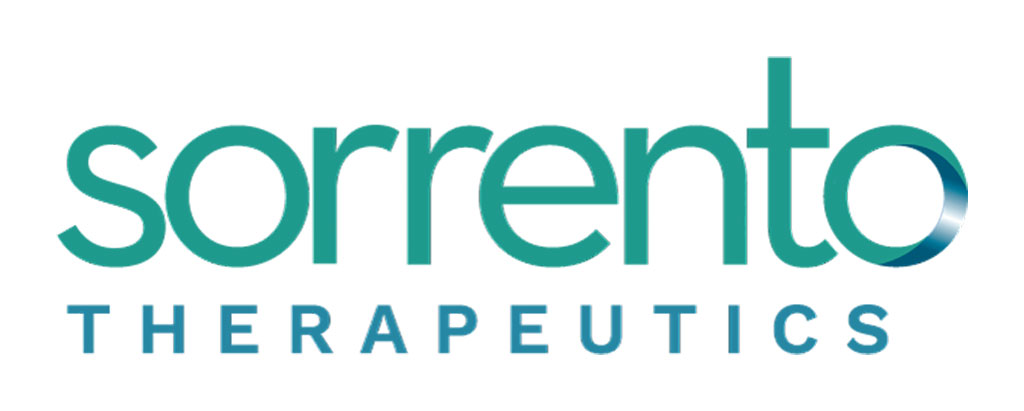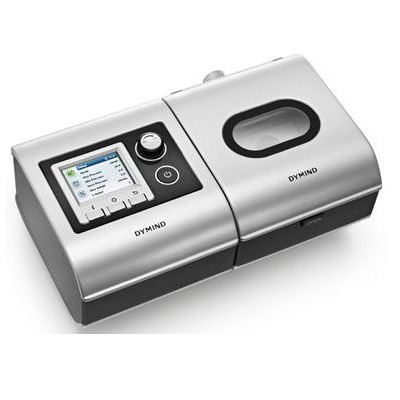Sorrento Therapeutics to Market Columbia University’s Rapid On-Site Detection Test for SARS-CoV-2 Virus in Saliva
|
By HospiMedica International staff writers Posted on 30 Jul 2020 |

Illustration
Sorrento Therapeutics, Inc. (San Diego, CA, USA) has entered into a licensing agreement with Columbia University (New York, NY, USA) for the rights to a rapid, one-step diagnostic test that detects the SARS-CoV-2 virus in 30 minutes from a sample of saliva.
Unlike other commercially available diagnostic products, the test developed by Columbia University's team, to be marketed by Sorrento under the COVI-TRACE name, holds all of the testing materials in a single tube and requires no specialized laboratory equipment, making it easily deployable for point of care, on-site or potentially at-home testing.
Current diagnostic tests for SARS-CoV-2 detect viral ribonucleic acid (RNA) but must be shipped to a reference laboratory unless the facility collecting the samples has purchased costly instrumentation, cartridges and consumables to extract viral RNA from the fluid in which the sample, either a nasopharyngeal swab or saliva, is placed. The current backlog in SARS-CoV-2 testing has resulted in average turnaround times of between several days to over a week, and laboratories across the country are reportedly struggling to keep up with increased testing demand.
However, the COVI-TRACE approach developed by Columbia University's team eliminates the extraction step and simplifies overall sample processing. A small sample of saliva is collected in a cup and then placed into a tube containing enzymes and reagents that can detect the SARS-CoV-2 virus's RNA. The tube is then placed into a simple heat block or water bath to keep the sample warm throughout the chemical reaction, which takes 30 minutes or less to provide a colorimetric reading based on detection of the presence of the virus. A study that evaluated the new test in 60 samples, including 30 samples with virus and 30 without, found sensitivity and specificity of 97% and 100%, respectively, and the ability to detect as few as one or two copies of the SARS-CoV-2 virus in a microliter of saliva.
"Testing for SARS-CoV-2 needs to be fast, frequent, and far-reaching. We are delighted to work with Sorrento Therapeutics in the hope that COVI-TRACE may be scaled and deployed in the U.S. and around the world to combat the spread of COVID-19," said Dr. Zev Williams, Director of the Columbia University Fertility Center.
"We are building a portfolio of highly relevant COVID-19 solutions that spans diagnostics, prevention, early intervention and rescue therapies," said Dr. Henry Ji, Chairman and CEO of Sorrento Therapeutics, Inc. "COVI-TRACE will be a key asset in our diagnostic solutions, and we intend to move rapidly to submit an emergency use authorization request to the FDA and prepare for full-scale production. Such a simple, deployable and cost-effective solution, in synergy with our potentially neutralizing antibodies, could become the 'economy opener' our country has been waiting for."
Related Links:
Sorrento Therapeutics, Inc.
Columbia University
Unlike other commercially available diagnostic products, the test developed by Columbia University's team, to be marketed by Sorrento under the COVI-TRACE name, holds all of the testing materials in a single tube and requires no specialized laboratory equipment, making it easily deployable for point of care, on-site or potentially at-home testing.
Current diagnostic tests for SARS-CoV-2 detect viral ribonucleic acid (RNA) but must be shipped to a reference laboratory unless the facility collecting the samples has purchased costly instrumentation, cartridges and consumables to extract viral RNA from the fluid in which the sample, either a nasopharyngeal swab or saliva, is placed. The current backlog in SARS-CoV-2 testing has resulted in average turnaround times of between several days to over a week, and laboratories across the country are reportedly struggling to keep up with increased testing demand.
However, the COVI-TRACE approach developed by Columbia University's team eliminates the extraction step and simplifies overall sample processing. A small sample of saliva is collected in a cup and then placed into a tube containing enzymes and reagents that can detect the SARS-CoV-2 virus's RNA. The tube is then placed into a simple heat block or water bath to keep the sample warm throughout the chemical reaction, which takes 30 minutes or less to provide a colorimetric reading based on detection of the presence of the virus. A study that evaluated the new test in 60 samples, including 30 samples with virus and 30 without, found sensitivity and specificity of 97% and 100%, respectively, and the ability to detect as few as one or two copies of the SARS-CoV-2 virus in a microliter of saliva.
"Testing for SARS-CoV-2 needs to be fast, frequent, and far-reaching. We are delighted to work with Sorrento Therapeutics in the hope that COVI-TRACE may be scaled and deployed in the U.S. and around the world to combat the spread of COVID-19," said Dr. Zev Williams, Director of the Columbia University Fertility Center.
"We are building a portfolio of highly relevant COVID-19 solutions that spans diagnostics, prevention, early intervention and rescue therapies," said Dr. Henry Ji, Chairman and CEO of Sorrento Therapeutics, Inc. "COVI-TRACE will be a key asset in our diagnostic solutions, and we intend to move rapidly to submit an emergency use authorization request to the FDA and prepare for full-scale production. Such a simple, deployable and cost-effective solution, in synergy with our potentially neutralizing antibodies, could become the 'economy opener' our country has been waiting for."
Related Links:
Sorrento Therapeutics, Inc.
Columbia University
Latest COVID-19 News
- Low-Cost System Detects SARS-CoV-2 Virus in Hospital Air Using High-Tech Bubbles
- World's First Inhalable COVID-19 Vaccine Approved in China
- COVID-19 Vaccine Patch Fights SARS-CoV-2 Variants Better than Needles
- Blood Viscosity Testing Can Predict Risk of Death in Hospitalized COVID-19 Patients
- ‘Covid Computer’ Uses AI to Detect COVID-19 from Chest CT Scans
- MRI Lung-Imaging Technique Shows Cause of Long-COVID Symptoms
- Chest CT Scans of COVID-19 Patients Could Help Distinguish Between SARS-CoV-2 Variants
- Specialized MRI Detects Lung Abnormalities in Non-Hospitalized Long COVID Patients
- AI Algorithm Identifies Hospitalized Patients at Highest Risk of Dying From COVID-19
- Sweat Sensor Detects Key Biomarkers That Provide Early Warning of COVID-19 and Flu
- Study Assesses Impact of COVID-19 on Ventilation/Perfusion Scintigraphy
- CT Imaging Study Finds Vaccination Reduces Risk of COVID-19 Associated Pulmonary Embolism
- Third Day in Hospital a ‘Tipping Point’ in Severity of COVID-19 Pneumonia
- Longer Interval Between COVID-19 Vaccines Generates Up to Nine Times as Many Antibodies
- AI Model for Monitoring COVID-19 Predicts Mortality Within First 30 Days of Admission
- AI Predicts COVID Prognosis at Near-Expert Level Based Off CT Scans
Channels
Critical Care
view channel
Light-Based Technology to Measure Brain Blood Flow Could Diagnose Stroke and TBI
Monitoring blood flow in the brain is crucial for diagnosing and treating neurological conditions such as stroke, traumatic brain injury (TBI), and vascular dementia. However, current imaging methods like... Read more
AI Heart Attack Risk Assessment Tool Outperforms Existing Methods
For decades, doctors have relied on standardized scoring systems to assess patients with the most common type of heart attack—non-ST-elevation acute coronary syndrome (NSTE-ACS). The GRACE score, used... Read moreSurgical Techniques
view channel
Minimally Invasive Endoscopic Surgery Improves Severe Stroke Outcomes
Intracerebral hemorrhage, a type of stroke caused by bleeding deep within the brain, remains one of the most challenging neurological emergencies to treat. Accounting for about 15% of all strokes, it carries... Read more
Novel Glue Prevents Complications After Breast Cancer Surgery
Seroma and prolonged lymphorrhea are among the most common complications following axillary lymphadenectomy in breast cancer patients. These postoperative issues can delay recovery and postpone the start... Read morePatient Care
view channel
Revolutionary Automatic IV-Line Flushing Device to Enhance Infusion Care
More than 80% of in-hospital patients receive intravenous (IV) therapy. Every dose of IV medicine delivered in a small volume (<250 mL) infusion bag should be followed by subsequent flushing to ensure... Read more
VR Training Tool Combats Contamination of Portable Medical Equipment
Healthcare-associated infections (HAIs) impact one in every 31 patients, cause nearly 100,000 deaths each year, and cost USD 28.4 billion in direct medical expenses. Notably, up to 75% of these infections... Read more
Portable Biosensor Platform to Reduce Hospital-Acquired Infections
Approximately 4 million patients in the European Union acquire healthcare-associated infections (HAIs) or nosocomial infections each year, with around 37,000 deaths directly resulting from these infections,... Read moreFirst-Of-Its-Kind Portable Germicidal Light Technology Disinfects High-Touch Clinical Surfaces in Seconds
Reducing healthcare-acquired infections (HAIs) remains a pressing issue within global healthcare systems. In the United States alone, 1.7 million patients contract HAIs annually, leading to approximately... Read moreHealth IT
view channel
Printable Molecule-Selective Nanoparticles Enable Mass Production of Wearable Biosensors
The future of medicine is likely to focus on the personalization of healthcare—understanding exactly what an individual requires and delivering the appropriate combination of nutrients, metabolites, and... Read moreBusiness
view channel
Philips and Masimo Partner to Advance Patient Monitoring Measurement Technologies
Royal Philips (Amsterdam, Netherlands) and Masimo (Irvine, California, USA) have renewed their multi-year strategic collaboration, combining Philips’ expertise in patient monitoring with Masimo’s noninvasive... Read more
B. Braun Acquires Digital Microsurgery Company True Digital Surgery
The high-end microsurgery market in neurosurgery, spine, and ENT is undergoing a significant transformation. Traditional analog microscopes are giving way to digital exoscopes, which provide improved visualization,... Read more
CMEF 2025 to Promote Holistic and High-Quality Development of Medical and Health Industry
The 92nd China International Medical Equipment Fair (CMEF 2025) Autumn Exhibition is scheduled to be held from September 26 to 29 at the China Import and Export Fair Complex (Canton Fair Complex) in Guangzhou.... Read more

















